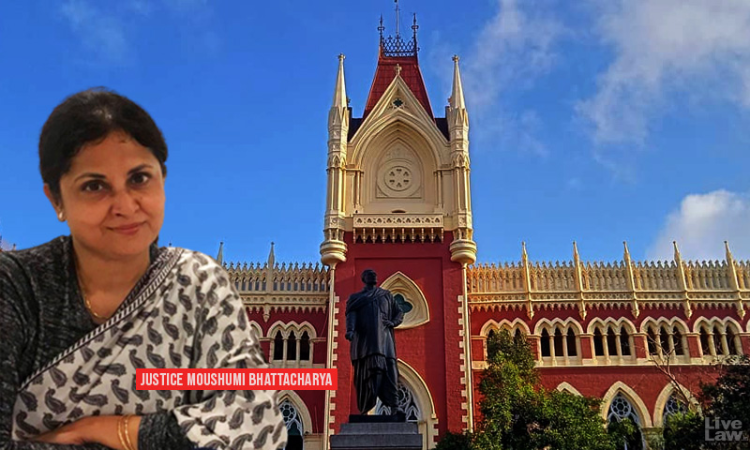” Breaking Boundaries assaying the inscrutability girding the Futurity of Interim Awards”
Interim Awards are awards that are issued by a court previous to the final determination of a case. These awards are frequently seen as nebulous, as their futurity can be uncertain. In this blog post, we will be examining the inscrutability girding Interim Awards and how they can be used to break boundaries when it comes to legal matters. We’ll explore the colourful counter accusations and counteraccusations of Interim Awards and how they can be used to achieve a asked outgrowth.
1. What are interim awards and their significance?

Interim awards are a type of decision made by arbitral bars during the course of an arbitration proceeding. These awards are made to resolve specific issues or controversies that arise during the course of the arbitration process, similar as controversies over the compass of the arbitration, the validity of an arbitration agreement, or the interpretation of certain vittles in the agreement.
Interim awards play a pivotal part in the arbitration process, as they help to streamline the proceedings and ensure that the parties can resolve their controversies as efficiently and effectively as possible. In addition, interim awards are frequently used to resolve critical or time-sensitive issues that can not stay until the final award is issued.
One of the crucial advantages of interim awards is that they give the parties an occasion to resolve controversies on an ongoing basis, rather than staying until the end of the arbitration process. This can help to reduce the overall cost of the arbitration, as well as minimise the threat of any issues getting more complicated or contentious over time. Overall, the significance of interim awards lies in their capability to give a medium for resolving controversies and issues in a timely and effective manner.
Whether they’re used to resolve critical issues or simply to streamline the overall arbitration process, interim awards play a pivotal part in the ultramodern world of transnational arbitration.
2. Inscrutability girding the futurity of interim awards

Interim awards are generally seen as provisional measures awarded by arbitral bars that aim to save the parties’ rights and avoid prejudice until the final decision is reached. Despite their provisional nature, they hold a significant degree of significance in arbitration proceedings.
Still, inscrutability girding the futurity of interim awards have been a source of contestation and debate within the arbitration community. Specifically, the question of whether interim awards are final and list has created confusion and query among interpreters.
One of the main issues girding the futurity of interim awards is their implicit impact on the final outgrowth of a disagreement. For illustration, if an interim award is issued on a pivotal matter but is later set up to be incorrect or unhappy, it may have a mischievous effect on the final decision. As similar, it’s pivotal to determine whether or not interim awards are truly final and listed.
Another issue concerns the eventuality for parties to seek dissolution or correction of interim awards. While final awards are generally binding and enforceable, the same can not always be said for interim awards. Some argue that interim awards should be subject to the same norms of review as final awards, while others believe they should be subject to further lenient norms.
Eventually, the part of public courts in interpreting and administering interim awards is another source of nebulosity. Depending on the governance, courts may have different interpretations of interim awards’ futurity and may not always apply them in the same way.
Despite these inscrutability, interim awards remain an essential element of arbitration proceedings. They give parties with important- demanded guidance on pivotal matters and help to avoid implicit detriment and prejudice. Similarly, it’s essential for interpreters to have a clear understanding of the futurity and enforceability of interim awards and to work to address any inscrutability or confusion girding them.
3.Judicial perspectives on the futurity of interim awards

The futurity of interim awards is a content that has been batted in legal circles for times. Judicial perspectives on the matter are varied, with some courts believing that interim awards are final and binding while others take the view that they’re not.
For illustration, the English High Court has traditionally been of the view that interim awards aren’t final and list, and can be challenged in the same way as final awards. Still, in recent times there has been a shift in the English courts toward treating interim awards as final and list.
Also, the French courts take the view that interim awards aren’t final and list, and can be challenged before the final award is issued. On the other hand, the Swiss courts have traditionally treated interim awards as final and list, with veritably limited grounds for challenge.
One of the crucial issues in the futurity of interim awards is the language used in the award itself. In some cases, the language may be clear that the award is final and list, while in others it may be less clear. This can lead to query and nebulosity and can make it delicate to determine whether an interim award is final and list or not.
Overall, judicial perspectives on the futurity of interim awards are complex and varied. While some courts treat interim awards as final and list, others take a more flexible approach. It’s important for parties to precisely review the language of any interim award, and to seek legal advice on their rights and scores about the award.
4. Case studies analysis of interim awards in different contexts

To more understand the complications and inscrutability girding the future of interim awards, it’s helpful to examine many case studies.
First, let’s look at a transnational marketable arbitration case between the US and a Chinese company. The bench issued an interim award on governance, changing that it had the power to hear the case. Still, during the proceedings, the parties reached an agreement and the case was resolved before the final award was issued. The question also arose as to whether the interim award on governance was binding and enforceable.
The Chinese company argued that it was not, as the agreement had effectively terminated the proceedings. The US company, on the other hand, argued that the interim award on governance was final and could be executed. Eventually, the court held that the interim award wasn’t final and list, as the agreement had supplanted it.
In another case, a construction company had brought a claim against a government reality for breach of contract. The bench issued an interim award on liability, changing that the government reality had traduced the contract. The construction company also sought to apply for the interim award in court.
Still, the government argued that the interim award wasn’t final and list, as the bench hadn’t yet decided on damages. The court agreed, holding that the interim award on liability wasn’t final and that the bench still had to determine the quantum of damages.
These case studies illustrate the difficulties that can arise when dealing with interim awards. While they may give guidance and direction to the parties, they’re frequently not final and list. Similarly, it’s important for parties to precisely consider the counter accusations of interim awards before counting on them.
Conclusion:
Interim awards are an essential element of arbitration proceedings, furnishing parties with primary opinions that can have a significant impact on the outgrowth of the case. Still, the futurity of interim awards is still a matter of nebulosity and debate in the arbitration community.
While some courts view interim awards as final and list, others may view them as provisional opinions that can be reviewed and challenged at an after stage. This lack of uniformity and thickness in interpreting the futurity of interim awards has led to confusion and query and has indeed caused detainments in resolving controversies.
Also Read: New Ministry Sets Up Panel Comprising ASG And elderly lawyers To Recommend In Arbitration Law
Also Read: Supercharge Your SEO: 10 Actionable Tips for Immediate Results



